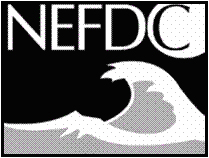Candidates for New Teams (with sponsor in italics)
We will begin the roll-out of new teams by choosing from the list below three or four teams to start with.
- Curricular Technologies (Peddie )
- Digital Archives/Collections/Library services (Simpkins)
- Information Security (Cutter)
- Language Schools/Bread Loaf/MMLA support (Roy)
- LIS Web presence (Rehbach)
- Training/Workshops (including internal LIS cross-training) (Backus)
The names listed to the right of each team above is the team sponsor. The sponsor’s role is to help provide a framework for the team and the resources needed to ensure the teams success, but the sponsor is not the team leader.
If you are interested in being a part of one of these teams, please contact the team sponsor with the following information:
- why you are interested in this team,
- a brief outline of the projects/activities/services you think the team should pursue.
- if you would like to be considered for the role of team leader, please mention that and also submit a draft charge for the team
- you may also nominate others for membership and leadership of a team.
- please make your interest known by Friday February 20th.
- please note: in some cases, we may ask people to join a team who haven’t volunteered!
We’ll announce the first round of teams, team leaders, and team members shortly thereafter. We’ll post more detailed information — including expectations for team members, team leaders, and team sponosors — soon on the LISt blogspace.
Existing Committees and other team-like things
Here is a list of groups that already exist that are team-like in their approaches and membership; we expect that as we move forward with our roll-out of more formal teams, these groups will be included in our list of ‘formal’ teams. (If there are other team-like things not on this list, let us know and we’ll add them.)
|
|
Teams Proposed to be formed later
Because we want to be thoughtful in how we manage the balance of responsibilities within teams and the responsiblities within workgroups and areas, we want to begin with a small number of teams, and then once we better understand how to do this, to launch additional teams. Teams that we intend to pursue later in the process include:
|
|
As part of this initiative, we will be developing a series of trainings that will allow staff impacted by this to learn more about managing work through teams. This includes training on the definitions of roles on teams, communication strategies, project management techniques, and conflict resolution. As this progresses, we will keep everyone informed about these professional development opportuntities.
